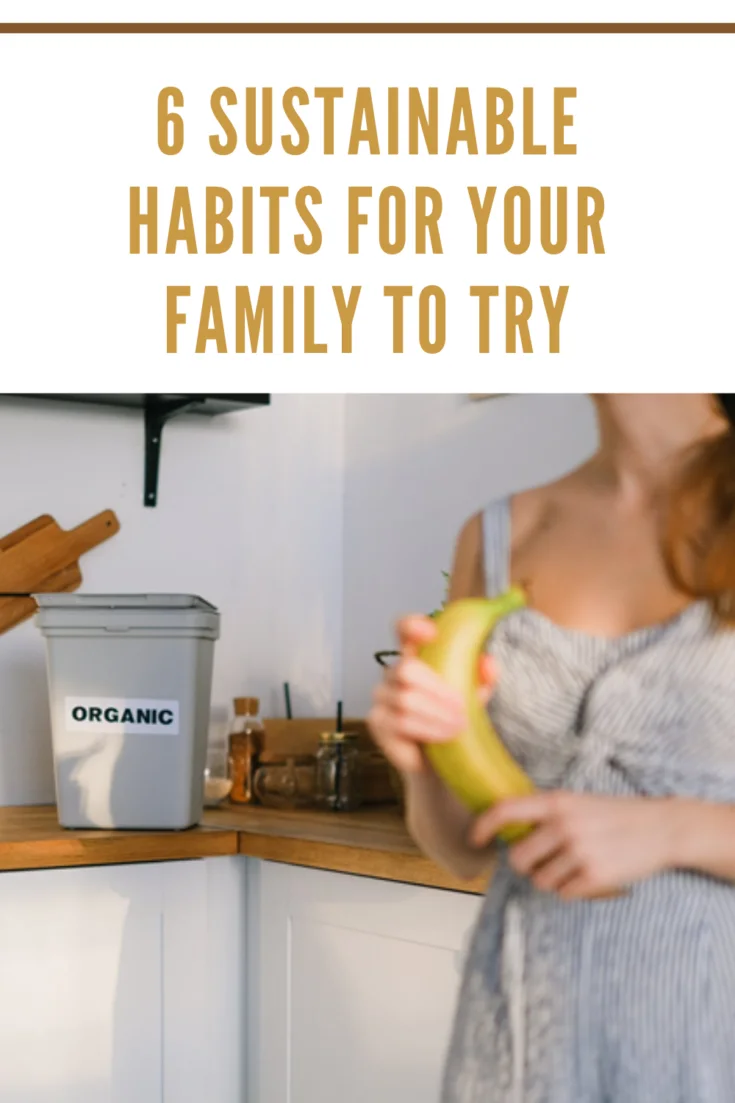The idea of going zero-waste and becoming an environmental ally is overwhelming and unrealistic for most families. However, it’s important to remember that the small steps count; perfection is overrated.
By creating sustainable habits in the home, you can do your part to reduce your carbon footprint and make the world a little greener. Here are six simple, sustainable habits for your family to become more eco-friendly.
Turn off the Lights
One of the simplest habits to introduce to your family is turning off the lights when you leave a room. Installing innovative home technology can help if your family is prone to forgetfulness. The simple act of turning off the lights reduces energy consumption and acts as a reminder that you’re trying to make a difference.
If you need to leave a hallway or bathroom light on for the night, consider swapping to LED lights. According to positricity.com, LED lights use up to 85% less power than an incandescent bulb. As your existing light bulbs burn out, consider making this eco-friendly swap.
Set Shower Time Limits
The average shower uses 2.1 gallons of water per minute unless you have a low-flow or aerator faucet. As the average shower is around eight minutes long, the average American uses 17 gallons of water each time they shower.
If you shower every day, that’s 6,205 gallons of water per person.
Reducing your shower time to five minutes (as a start) will save over 2,500 gallons of water per year. Consider setting timers to ensure everyone stays under five minutes, or be strategic in your shower habits. For example, turn off the water to shave and soap up, turning it back on for your rinse.
Let Clothing Air Dry
Another simple way to cut back on consumption is to let your clothing air dry. According to arcadia.com, using a portable rack or clothesline for your laundry can dramatically reduce your power consumption, as a typical dryer uses 3000 watts each time it runs, according to arcadia.com. Even letting your clothing air dry during the warmer months will have an impact.
Another benefit of letting your clothes air dry is extending their lifespan. As discarded clothing adds an estimated 14 million tons of refuse to the landfill each year, this habit is worth its weight in gold, says roadrunnerwm.com.

Start Composting
Throwing food in the garbage causes a plethora of issues. Not only does it make your trash more appealing to critters while it’s on the curb, but it also releases gases in the landfill that contribute to the pollution problem.
If your area doesn’t have a composting program in place, you can start your own at home. Create a traditional compost in your backyard, use it for gardening, or invest in an airtight countertop composter. Use your compost to feed indoor and outdoor plants, or donate it to a local community garden.
Be an Eco-Conscious Shopper
One of the most common mistakes people make when embracing sustainable habits is replacing their existing goods and belongings with a “green” alternative. To be genuinely eco-conscious, keep using your current products until they’re no longer usable before upgrading. Miir has great suggestions if you’re looking where to begin.
Be intentional when shopping, and look for businesses with a B-corp certification. Take the time to research the organization and look beyond marketing jargon to confirm that the company is making a difference.
Pick Up Litter
Schedule a litter pick-up day once per month with your family. You can make an event and reward your efforts with ice cream or a movie night afterward. This habit is a great way to give back to your community while showcasing the importance of reducing consumption and waste.
Remember that every little bit makes a difference when living an eco-friendly life. You don’t have to switch to hemp clothing and costly cosmetics to improve the world. Just be intentional with your actions and purchases and do a little better each day.
